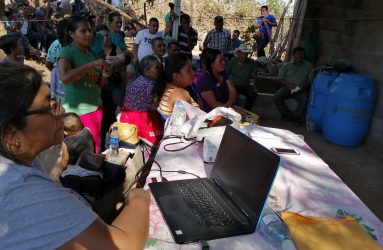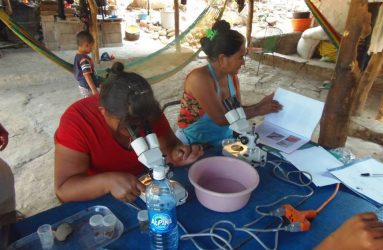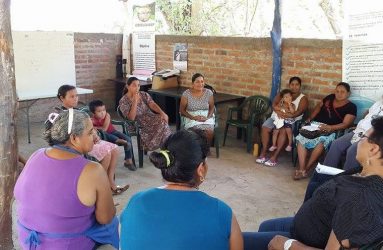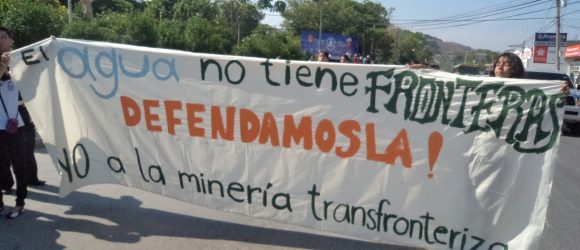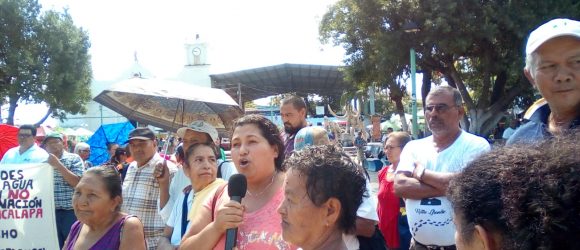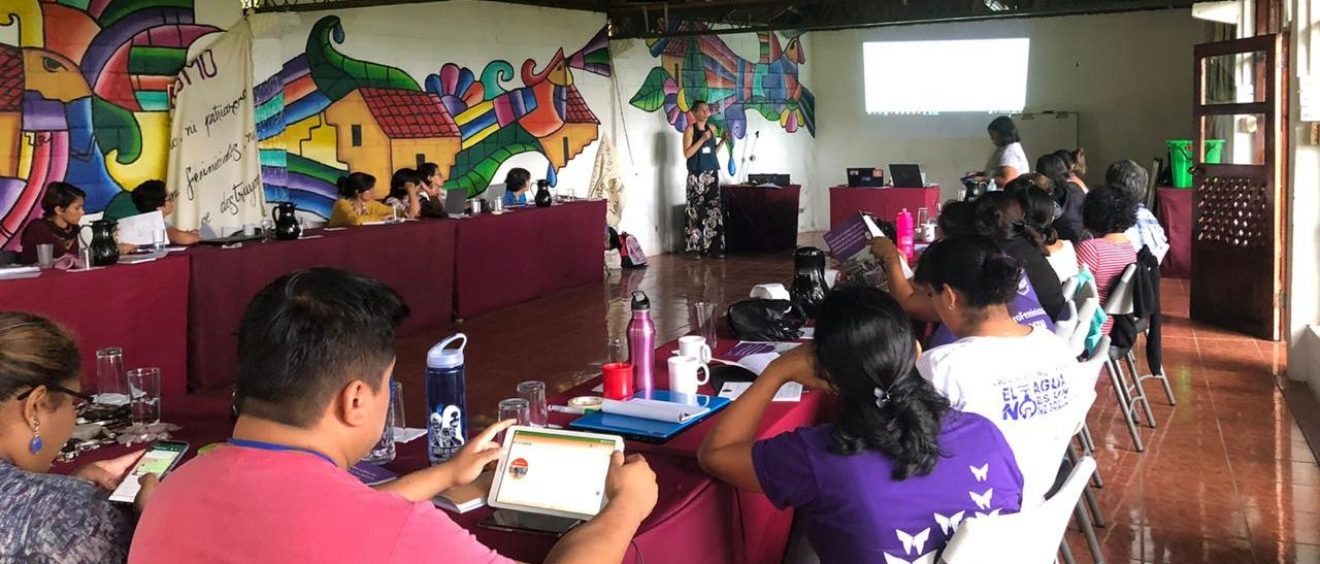
Connecting women’s rights and IFI experts
Women’s right to a healthy and safe environment has as much to do with the flow of money as it does with the flow of water. After a flood of global investment into their communities, women often see clean water turn toxic, or their rivers run dry. Publicly-supported International Financial Institutions (IFIs) are a key player in global financial flows, investing hundreds of billions each year in projects purportedly aimed at fostering economic growth and reducing poverty. All too often, such projects undermine the rights of women.
In 2019 Both ENDS collaborated with experts on IFIs and women’s rights to exchange knowledge and strengthen each other’s work. An annual retreat in Argentina of the International Advocates’ Working Group (IAWG), a network of organisations focused on the accountability systems of IFIs, provided a valuable opportunity to bring these two movements together.
Both ENDS supported several Latin American women’s rights organisations – partners within the Global Alliance for Green and Gender Action (GAGGA) – to attend the retreat, where they shared with IAWG members their perspectives on IFIs and their impacts, including some scepticism about the effectiveness of engaging with IFIs directly, as many IAWG members do. In its efforts to connect the environmental and women’s rights movements, Both ENDS has learned that special care is needed to create a safe and productive space for cross-movement dialogue. The dialogue was rich and informative, if not always comfortable, for all participants.
MUTUAL LEARNINGS ON IFIs AND GENDER
The new connections created in Argentina have already proven useful. Following the retreat, GAGGA partner Mujeres Ambientalistas, an El Salvador-based network of women environmentalists, launched a new project to raise awareness about IFIs among its members. Often, local women activists have little information about who is funding a project or what can be done about it. Mujeres Ambientalistas invited Both ENDS, along with the Bank Information Centre, to conduct a workshop on IFIs for local women’s rights organisations and activists. Some 40 participants across El Salvador gathered in October to learn how IFI funding works, how IFIs often play a role in financing projects that women are resisting, and about relevant international rules, safeguards and mechanisms for pursuing justice.
The visit was also an opportunity for Both ENDS to learn more about how local women in El Salvador are organising to protect the environment. When destructive projects are seen through the eyes of the local women, it is clear that IFIs are one piece of a large and complicated puzzle. Both ENDS will draw on these and other learnings as it provides input on gender in the Inter-American Development Bank’s safeguard policy, which is up for review in 2020.

